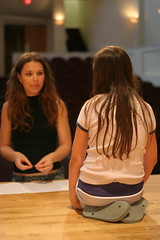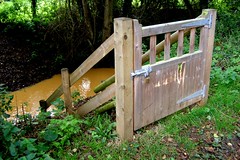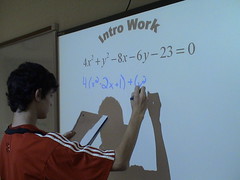Created with Admarket's flickrSLiDR.
I've just updated the Manitoba EdubloggerCon wiki. We had a live Twitter feed and UStream feed. All the videos of the unpresentations can be seen from the Manitoba Edubloggercon UStream account or the wiki.
The next day, yesterday, Chris, Clarence, Dean, John and I had lunch together to catch up and chat. Unfortunately, John had to leave early but as we lingered over the end of the meal, Dean fired up his laptop and started streaming video and audio on his Ustream channel. We were joined for lunch by over 20 people from across the world. We forgot to click the record button so we've lost the video archive but Clarence saved the chat which you can download from his blog or read directly on the MBEdubloggercon wiki (it's easier to follow the links off the wiki page). There was lots of interesting discussion and some good links shared. One of them led me to a voicethread archive of lots of math content that's giving me ideas for how I can use it in my classroom. That's also a resource I can link to and use in my Consumer Math 20S (grade 10, approx. 15 y.o.) class. (My daughter (7 years) and I watched this one this morning and left a comment on the last slide.)
Dean took some photos at lunch. I aggregated them into this voicethread. (I know Dean wants to hear lots of comments about the salad (slide 2) I had with my lunch.) I haven't had a chance to add any comments yet. Feel free to add yours before I do. ;-)
Having been immersed in "networked learning" for a while now, the power of the network to connect and amplify learning still amazes me every time. Even my 7 year old daughter got something out of all this. Thanks to an email I got from Brian Metcalfe (who attended the event on Thursday night) while I was chatting with Dean this morning we're talking about an idea that may make math a little more fun in classrooms across the world, in March ... on the fourteenth, to be exact. ;-) I'll share more about it here as we flesh this out.
Like I keep saying to my students, again and again, "Learning is a conversation. If you're not talking to someone about it, you're not learning it."
- 11/24/2007 11:56:00 am
- 5 Comments










